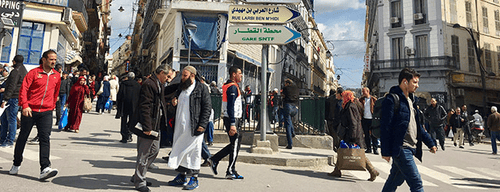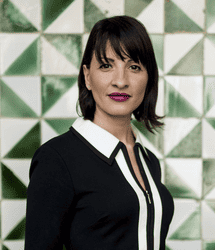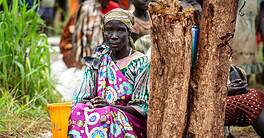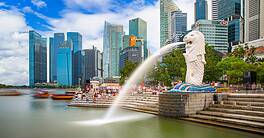Serious problems detract from Algeria’s foreign direct investment appeal, although the government is making efforts to improve.
Despite needing outside investment, Algeria isn’t putting out the welcome mat. The country is “not particularly friendly to foreign investors,” says Riccardo Fabiani, senior analyst for Middle East and North Africa at the Eurasia Group.

In 2016, net foreign direct investment (FDI) inflows reached $1.5 billion, partially due to recovering investment in the oil and gas sector. That followed a steep drop in 2015 caused by factors such as the government’s buyout of Omnium Telecom Algeria’s majority stake from Russian company VimpelCom after a long legal battle. The government has a strong interest in attracting investors in manufacturing, especially autos and pharmaceuticals. Companies such as Anadarko Petroleum and AstraZeneca have succeeded in Algeria, but others have not fared as well.
One troublesome restriction limits foreigners to minority stakes, making joint ventures the rule. Foreign investors must cede control to locals, often crony business associates or oligarchs. “They are usually the ones who pull the strings,” warns Algerian-born Dalia Ghanem-Yazbeck, resident scholar at the Carnegie Middle East Center, referring to corruption in government contracts and land awards.
A project can require approval from several cabinet departments, she says, where investors often face nepotism and requests for bribes, or “facilitation” payments. The judiciary is “not very independent,” she adds. “[Investors] complain in Algeria that [laws and regulations] are inconsistent and applied unevenly.”

Restrictions vary between sectors, making it even more confusing. “Foreign investors are treated better in the oil and gas sectors,” Fabiani notes.
Moreover, Algeria is not a full member of the World Trade Organization and thus not bound by its rules. “If you have a problem, you don’t have the WTO’s system of rules for support,” Ghanem-Yazbeck notes.
Investors seeking similar opportunities with fewer obstacles can look to one of Algeria’s neighbors. “Morocco has more certainty and more stability,” Fabiani points out.
The FDI picture does have some encouraging aspects. A former prime minister, Ahmed Ouyahia, returned to power in August. Sometimes called “Mr Dirty Work” by those critical of his past record, he immediately authorized the central bank to finance the budget deficit, removing the need for further domestic borrowing but creating inflationary expectations. The Revised Investment Law of 2016 eased restrictions on transferring invested capital, dividends and disposal proceeds out of the country. “It’s a part of this picture of the authorities making an effort to improve the [investment] environment,” Fabiani says.
|
Vital Statistics |
|---|
|
Location: North Africa |
|
Neighbors: Tunisia, Libya, Niger, Mali, Mauritania, Western Sahara, Morocco |
|
Capital city: Algiers |
|
Population (2017): 41,318,142 |
|
Official language: Arabic |
|
GDP per capita (2016): $3,843.80 |
|
GDP growth (2016): 3.7% |
|
Inflation (2016): 6.4% |
|
Currency: Dinar |
|
Investment promotion agency: National Agency of Investment Development |
|
Investment incentives available? Some tax breaks and financing assistance |
|
Ease of Doing Business rank (2017): 166 |
|
Corruption Perceptions Index rank (2016): 108 |
|
Political risk: Widespread corruption; potential power vacuum when long-serving president’s term ends in 2019 |
|
Security risk: Proximity to Libya, Mauritania and Niger; active terrorist threats; travel in some areas within the country considered inadvisable |
|
PROS |
|---|
|
Recognition of need for reforms |
|
Increasing interest in renewable energy and diversification |
|
Cons |
|---|
|
In spite of recognition of need for reforms, government reluctance to speed them up |
|
Continuing serious questions about president’s health |
|
Fines of up to 40% on companies not submitting documentation on time |
|
Sources: Echorouk Online, Norton Rose Fulbright, The New Arab, Transparency International, US State Department, various government travel advisories, World Bank, World Population Review |
For more information on Algeria, check out our Country Economic Reports



